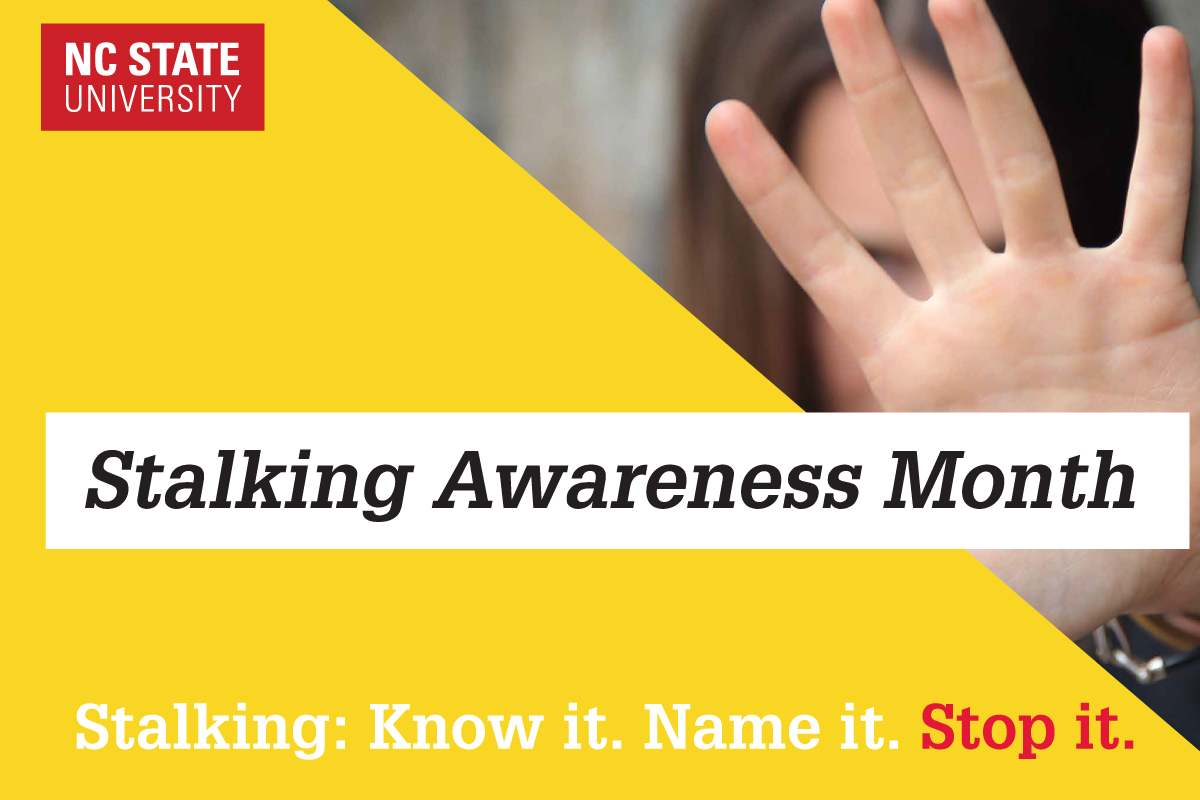
January is Stalking Awareness Month. Stalking involves any kind of repeated unwanted contact that causes a reasonable person fear. Stalking behaviors may include damaging a person’s property, showing up unexpectedly, calling or texting repeatedly, commenting or liking all or most of a person’s social media posts, tapping phone calls or going through a person’s emails and/or texts.
 While stalking is one of the least publicly discussed forms of interpersonal violence, it disproportionately affects college students. A recent study found that college-aged students are twice as likely to experience stalking than the general public but are also less likely to report it to authorities.
While stalking is one of the least publicly discussed forms of interpersonal violence, it disproportionately affects college students. A recent study found that college-aged students are twice as likely to experience stalking than the general public but are also less likely to report it to authorities.
Why are college-aged students are more likely to deal with stalking? One potential reason is the physical layout of college campuses – stalkers can easily access a victim anywhere on campus at any time. Social media such as Twitter, Snapchat and even a university directory can make it easy for a stalker to target a victim. For example, most people know how and where a best friend does things such as park their car, live, get food and go to class. While campuses may feel large, they can feel very small to a victim of stalking.
Anyone experiencing stalking should reach out and get help. Stalking does not go away on its own; moreover, stalking behaviors tend to escalate quickly, especially if a victim had a former relationship (or there was a perceived relationship) with their stalker. The Women’s Center aims to help raise awareness about the impact of stalking and that equip students to be active bystanders and allies to survivors. Each event that the Women’s Center hosts as part of Stalking Awareness Month will focus on on- and off-campus resources that may be helpful for survivors.
- See the Stalking Awareness Month calendar of events.
Sara Forcella is rape prevention education coordinator in the Women’s Center.